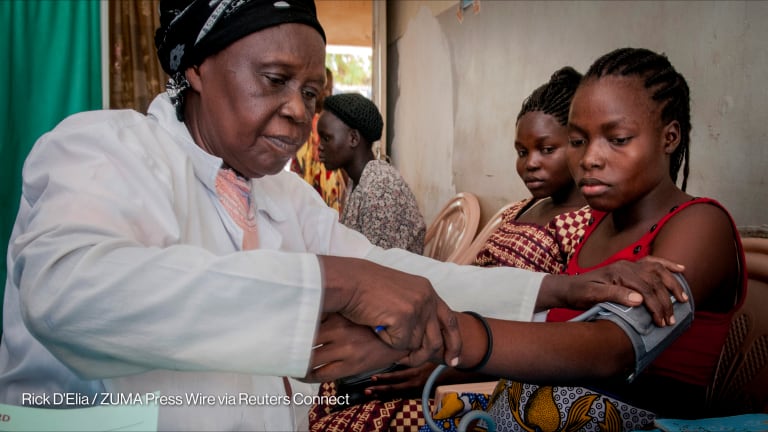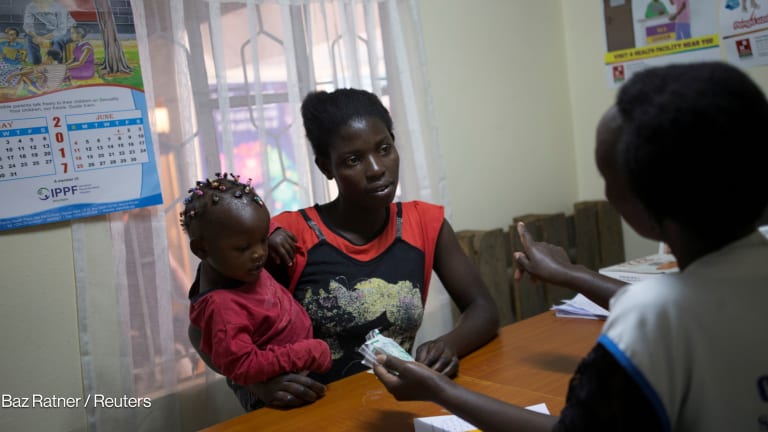
Right now, the development community is busy readying itself for the Global Partnership High-Level Meeting in Mexico next week. Conversations there promise to range widely, but how best to use increasingly pressured aid budgets is sure to be high on the agenda both for donor and partner countries, as well as for the myriad of non-state actors who will also be present.
The most effective use of aid will of course be subject to much debate well beyond Mexico. Should aid’s primary purpose be to support the delivery of essential public services to improve people’s lives in countries that simply do not have the money to do this themselves? Or should it be used to help countries grow wealthier and transform economically in ways that reduce poverty and inequality? Or perhaps we should use aid for both service delivery and catalyzing economic development, with the question being to find an appropriate balance between the two?
These are decisions that should rightly be taken by partner countries themselves, in accordance with the now long-established principles of country ownership and inclusive development partnerships. But in reality, evolving donor “fashions” still very much color the picture.
The current darling of many donor agencies is to channel increasing amounts of aid to economic development and to or through the private sector. In terms of securing long-term development, it is widely accepted that economic growth is central but not sufficient — it is the type of growth that ultimately matters to promoting equality and reducing poverty levels. Indeed, according to a recent IMF paper, lower net inequality is robustly correlated with faster and more durable growth. In line with that view, it is critical that economic growth generates more government revenues that are then shared out, notably through taxes, and that a broad range of people participate directly in that economic growth through decent and well-paid employment.
The role of states and the private sector is clearly critical here, with recipient countries needing to define and shape the quality and direction of growth so that it meets agreed social, economic and environmental objectives. This is done using a carefully tailored set of economic and industrial regulation and subsidies, including, but by no means limited to, aid.
So as donors look at targeting increased aid at the private sector as an engine of economic development, it’s important that they do so on the basis of clearly defined national strategies and using country systems and local procurement. Any donor targeting of aid to the private sector should be based on clear evidence that this spending not only will generate development results, but that this will be truly developmental and transformational, helping to diversify economies away from heavy dependence on agriculture and informal sectors. They should also consider the opportunity cost of aid going to the private sector, given the likely implications in terms of reduced spending on other areas such as essential services. Critically, they should also assess whether aid is actually the best policy tool available for the partner country to promote economic development at all.
Unfortunately, it seems that donors are all too often pursuing other priorities in their support of the private sector. There are particular concerns that donors are using aid to benefit their own companies, either directly funding investments or by using aid to smooth the way for investors by securing greater access to resources or to markets. The G-8 New Alliance, which seeks global investment in food security, is a case in point. Under this initiative, some African governments have committed to changing seed, land and tax laws to become more favorable to private investors. The promotion of aid to leverage private finance for the delivery of essential public services — including health and education — is also a matter for concern, given the growing evidence of the impact this can have for poor and marginalized communities.
Development agencies face many difficult questions in times of economic austerity, so it’s more vital than ever that the meeting in Mexico next week be used by the international community as a chance to explore some of these issues openly and critically, and based on evidence of what works in the best interests of partner countries. The ultimate goal being that ODA continues to deliver the best “bang for the buck,” reflecting the priorities and choices of partner countries themselves, and delivered in ways that supports country systems and local procurement.
Join the Devex community and access more in-depth analysis, breaking news and business advice — and a host of other services — on international development, humanitarian aid and global health.
Search for articles
Most Read
- 1
- 2
- 3
- 4
- 5








